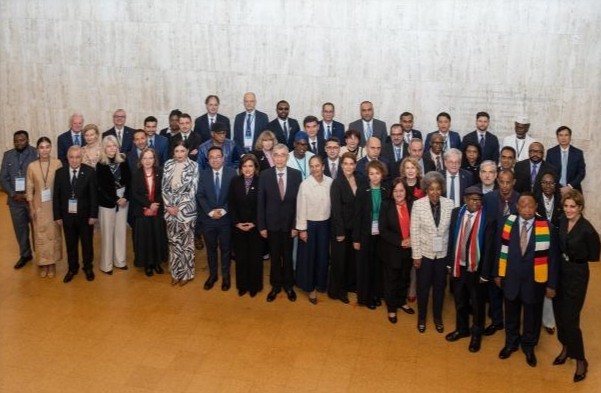UNESCO and the Transformative Potential of Science Diplomacy for Building Peaceful Contexts, March 2025

On 25–26 March 2025, UNESCO hosted a major event featuring the Global Ministerial Dialogue on the transformative potential of science diplomacy to foster peaceful societies. This Dialogue marked the launch of a new set of UNESCO-led initiatives in the field of science diplomacy.
The event was held under the framework of the International Decade of Sciences for Sustainable Development and brought together around 1,000 participants, including 60 national representatives from across the globe. It provided a unique opportunity for international experts to explore the role of science diplomacy in addressing the complex challenges of the 21st century.
The discussions focused on key issues such as research security, shared resources, open science, emerging technologies, and global commons. The overarching aim of the event was to encourage all stakeholders to actively engage in using science diplomacy as a means to promote peace and sustainable development.
One of the keynote speakers, Professor Tshilidzi Marwala, Rector of the United Nations University, highlighted:
At a time of deep geopolitical tension, science remains one of the few areas where global collaboration continues. Climate change, pandemics, and space exploration remind us that our challenges are not bound by borders. Our solutions can and must transcend national boundaries.
At the conclusion of the Dialogue, the co-chairs of the ministerial roundtables summarised the key discussions and called on UNESCO to strengthen collaboration between the scientific and diplomatic communities, supporting the development of strategic initiatives in science diplomacy.
A side event also demonstrated how UNESCO, through science diplomacy, can contribute to conflict prevention, joint management and equitable use of water resources, and environmental monitoring. A prominent example was the Guaraní Aquifer System Project, which spans over one million square kilometres across Argentina, Paraguay, Brazil and Uruguay.


